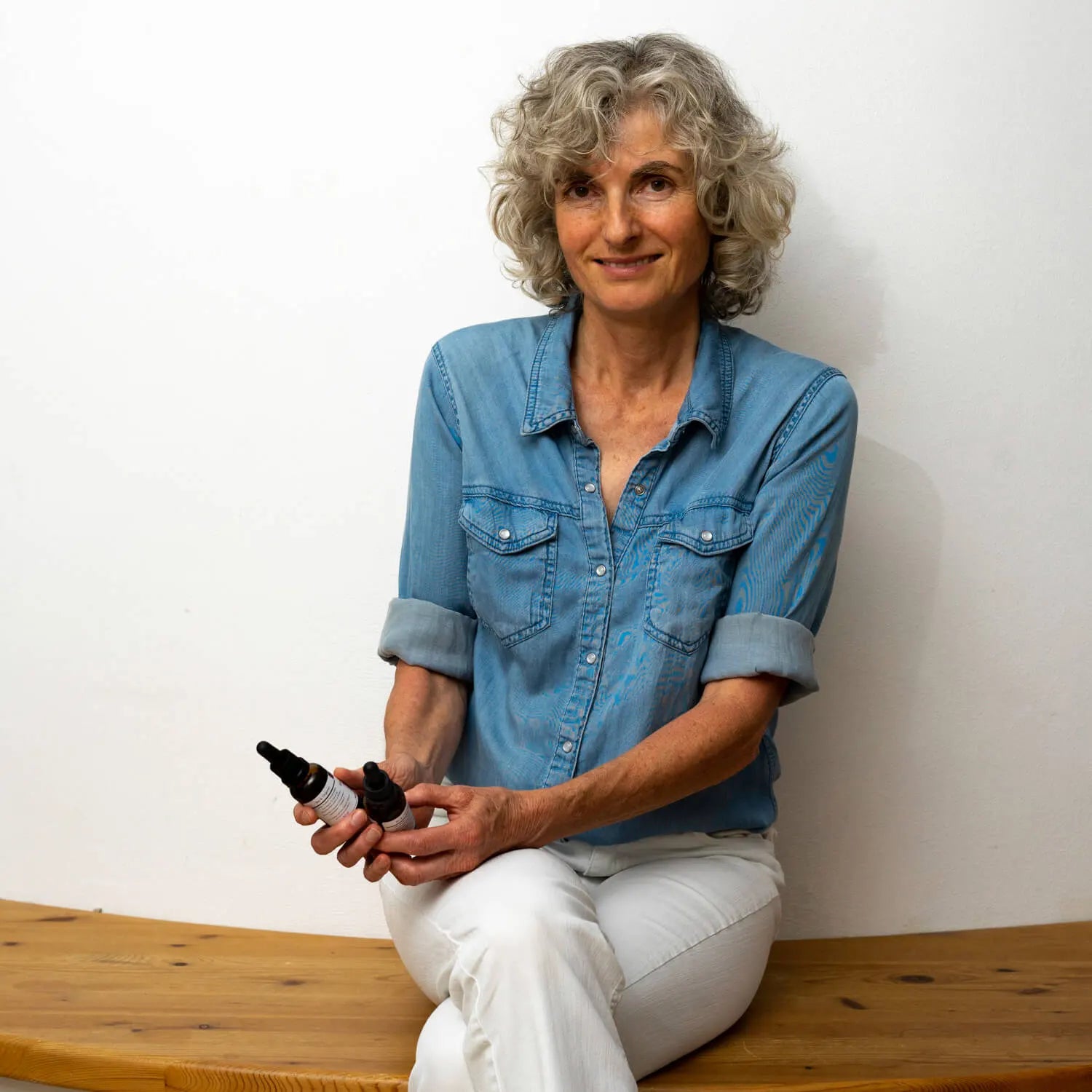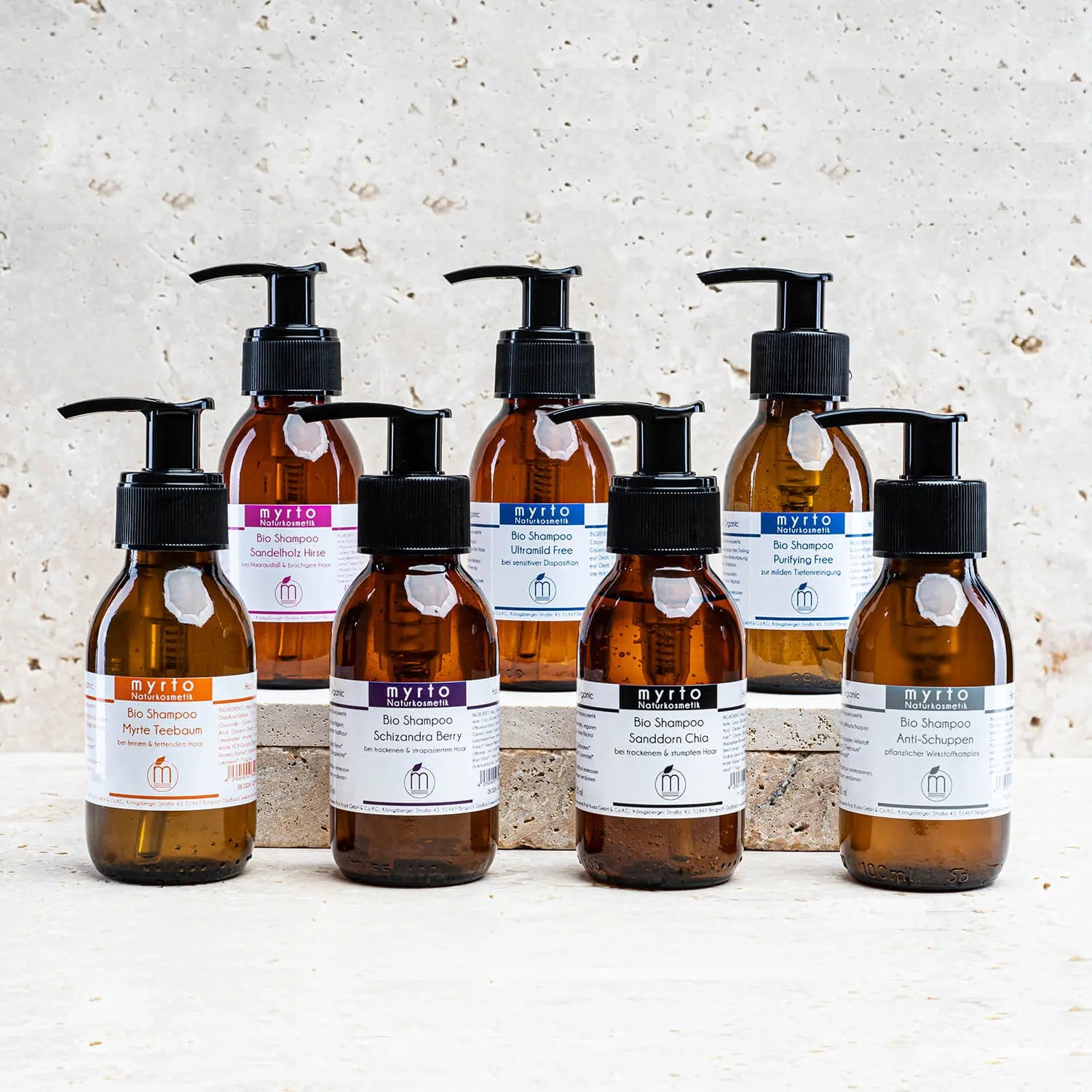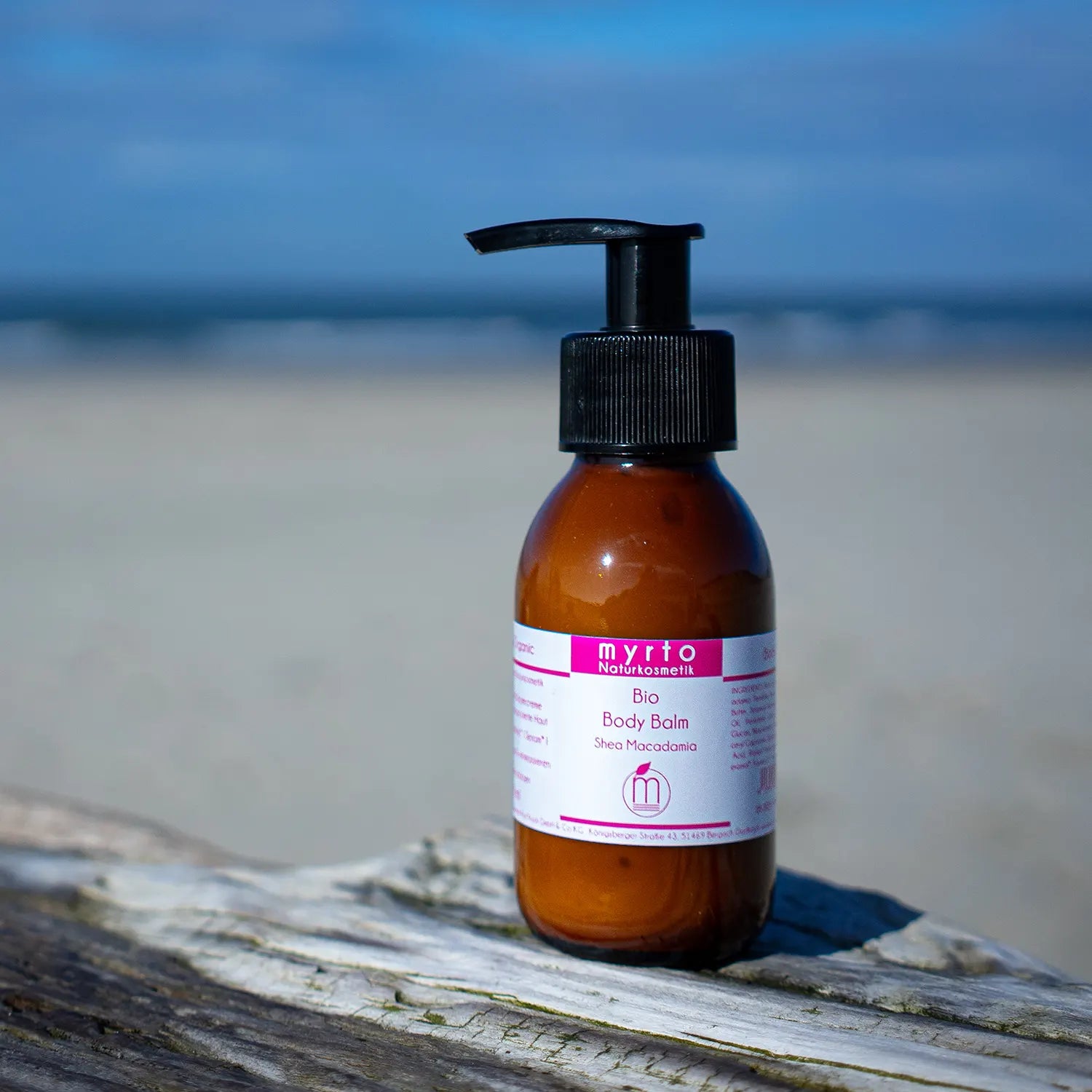
Over-cared skin – What can be behind pustules, itching and redness
Interview by the Berliner Sonntagsblatt with Eva Silvana Kruck, the founder of myrto Naturkosmetik
In this interview from the Berliner Sonntagsblatt (BS), Eva Silvana explains what "over-cared" skin is, how you can recognize it and what the causes are. You will learn what you can do to combat pustules, itching and redness with the right facial care. Finally, Eva gives care tips on how you can bring over-cared, problematic skin back into balance with holistic care and a little patience.
BS: How much care does the skin need?
Eva: Good skin care uses just a few ingredients that complement each other in their effects. It is important that there are no fillers or critical additives. Facial care should be suitable for the individual changing skin needs and specially adapted for sensitive, hypersensitive, dry, oily or combination skin.
BS: What does it actually mean when the skin is “over-cared”?
Eva: The skin disease, also known as "stewardess disease" or "mouth erysipelas," is medically known as "perioral dermatitis" (POD). The rash is accompanied by reddish bumps around the mouth and a damaged skin barrier. The result: the skin can no longer retain moisture and it dries out increasingly.
BS: How do you recognize over-cared skin?
Eva: Redness, flaky or irritated skin around the mouth and chin are typical. In the case of perioral dermatitis, a narrow border around the lips remains without symptoms. There are also purulent red blisters, pimples or papules. In an advanced stage, the feeling of tension in the skin with burning and itching can also spread to the eye area, the nostrils or the forehead.
BS: How do pustules, redness and itching occur?
Eva: Usually it is the large number of unsuitable care products, also in combination with make-up. The more often the skin is rubbed with unsuitable creams and lotions, the worse it gets. The skin defends itself against the "too much" of incorrect care. This is not a classic allergy to individual ingredients, but a temporary intolerance to any cosmetic product in general. Perioral dermatitis is harmless and not contagious, but it is very unpleasant and psychologically stressful for those affected.
BS: How can you distinguish over-cared skin from rosacea, neurodermatitis or acne?
Eva: Over-cared skin sometimes resembles rosacea, neurodermatitis or acne. However, rosacea is usually more widespread - in contrast to perioral dermatitis, which is more localized to the mouth and chin area. Unlike acne, over-cared skin does not produce blackheads.
BS: Do you often deal with customers whose skin is over-cared for?
Eva: Yes, we are often contacted by customers who have symptoms of over-cared skin such as itching, dryness, flaky patches, redness, pustules or papules. Often they have a long odyssey of negative skin care experiences behind them, have already been treated by a dermatologist and have tried pharmacy cosmetics without success.
BS: What do you recommend in such cases?
Eva: First of all, we recommend a cosmetic therapy - the complete avoidance of face creams, serums and other care products so that the skin can regenerate. This is of course difficult to bear, especially with itchy, flaky skin and a dry, tight feeling. You instinctively want to apply more cream. In the first 2 weeks, the condition may initially worsen while the swollen horny layer dries out and the bacteria that cause pimples are deprived of their breeding ground. During this time, a lot of patience and self-discipline is required until the symptoms slowly subside after about 6 weeks. To support consistent beauty deprivation, we recommend astringent compresses with cooled green or black tea. Healing clay masks mixed with water promote the detoxification of the skin. An anti-inflammatory diet with plenty of fresh fruit, vegetables, nuts and seeds, which are rich in omega-3 fatty acids, is also important. On the other hand, you should avoid or at least reduce sugar, alcohol, white flour and dairy products.
BS: How do you find your way back to healthy skin?
Eva: When the symptoms have subsided and the skin has recovered, we recommend a minimalist daily care routine with as few ingredients as possible, without emulsifiers, fragrances, alcohol and unnecessary additives. You should start with just one product, such as the skin-soothing Calming Serum. The main active ingredients contained in it - magnolia bark, green tea and licorice root - inhibit inflammation and promote the healing of damaged tissue. Beta-glucan from the oat germ layer strengthens the skin barrier and reduces redness. The serum should be used alone for about a week. After that, the care routine is gradually expanded with additional products.
BS: What is special about myrto natural cosmetics? How does it differ from conventional natural cosmetics in the premium segment?
Eva: Our natural cosmetics are free from any additives that weaken the skin. These are not just preservatives, alcohol and fragrances in facial care. It was essential to us from the beginning that all myrto creams and lotions are also free of emulsifiers.
BS: Why are emulsifier-free products so important? What is the problem with conventional creams and lotions?
Eva: Common emulsifiers not only hold oily and watery components of a product together, but they also have unpleasant side effects: They dissolve the fats in the skin's own protective barrier, so that they are washed out the next time it comes into contact with water. Common emulsifiers therefore weaken the skin's protective function, they dry out the skin and encourage blemishes. Your skin becomes increasingly drier the more often you apply cream.
Instead of conventional emulsifiers, we use skin-identical phospholipids (INCI: Hydrogenated Phosphatidylcholine) at myrto, which are part of every human cell membrane. In addition, pectin and beta-glucan from oats keep the myrto creams, lotions and serums stable and strengthen the skin's own immune system.
Our aim is to use myrto products to rebuild and strengthen the weakened skin barrier. This is the most important prerequisite for long-term youthful and healthy skin.
BS: Can you prevent “over-cared skin” with the right products?
Eva: The most important thing is a strong skin barrier. Over-cared skin is caused by the wrong ingredients. With an emulsifier-free, sensibly designed facial care product with consistently skin-friendly ingredients, tailored to the individual skin type and the current skin situation, there is no such thing as "too much".
However, sensitive skin can react unexpectedly with irritations if there are individual intolerances. In addition to skin-damaging additives in cosmetics, it is usually care mistakes that are the cause of "over-cared skin". This includes comedogenic ingredients in skin prone to blemishes, too high doses of active ingredients, aggressive peelings or the daily use of chemical sunscreen filters.




